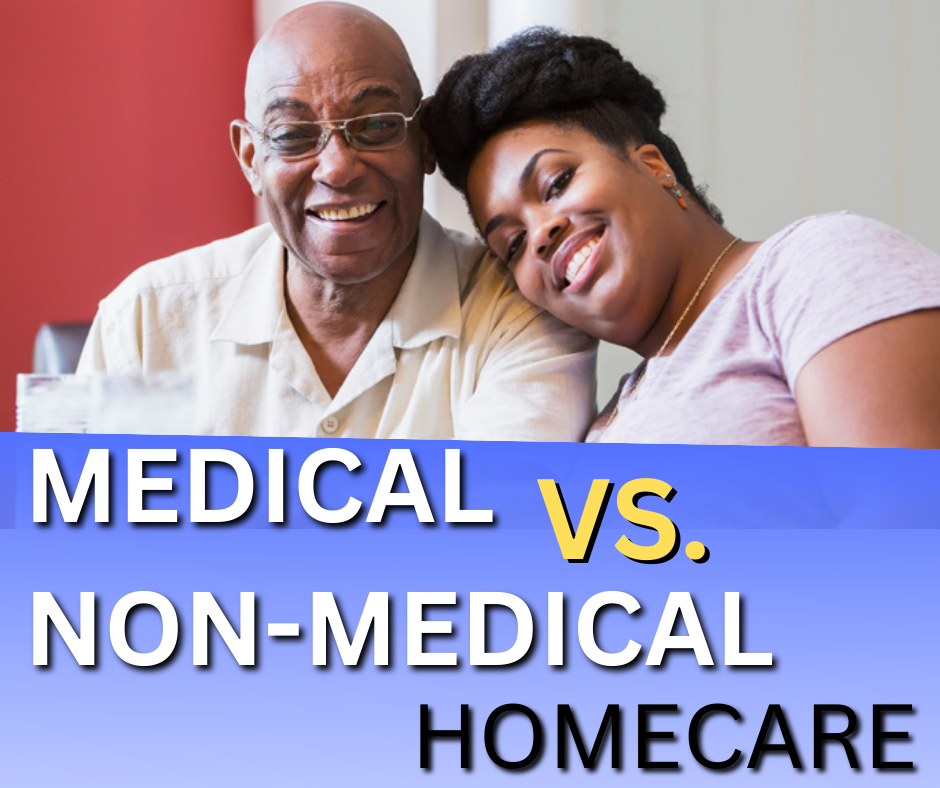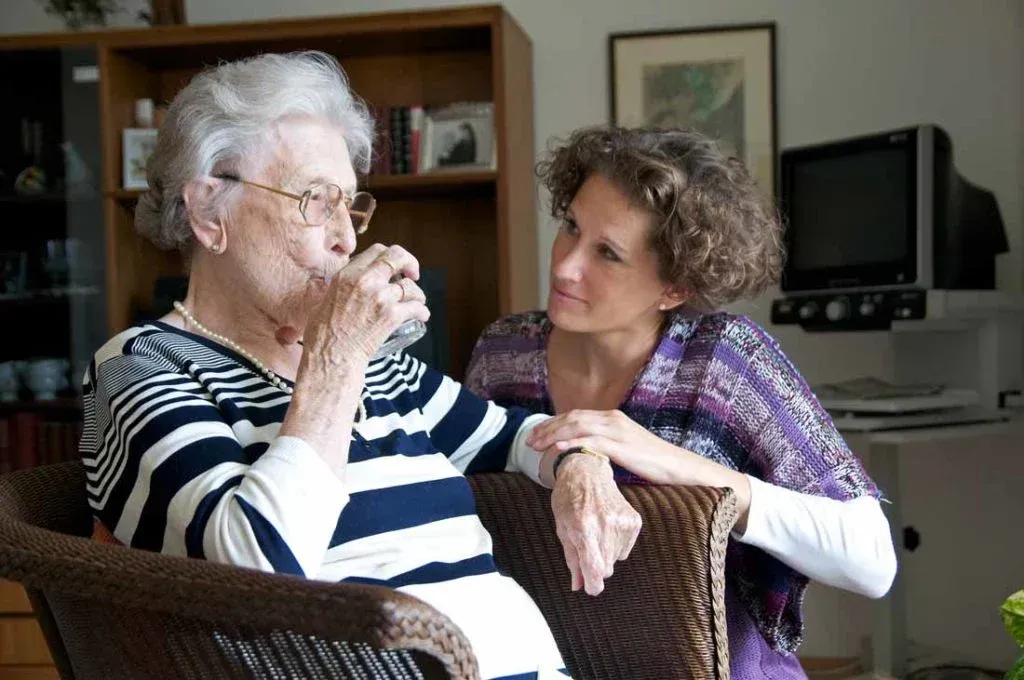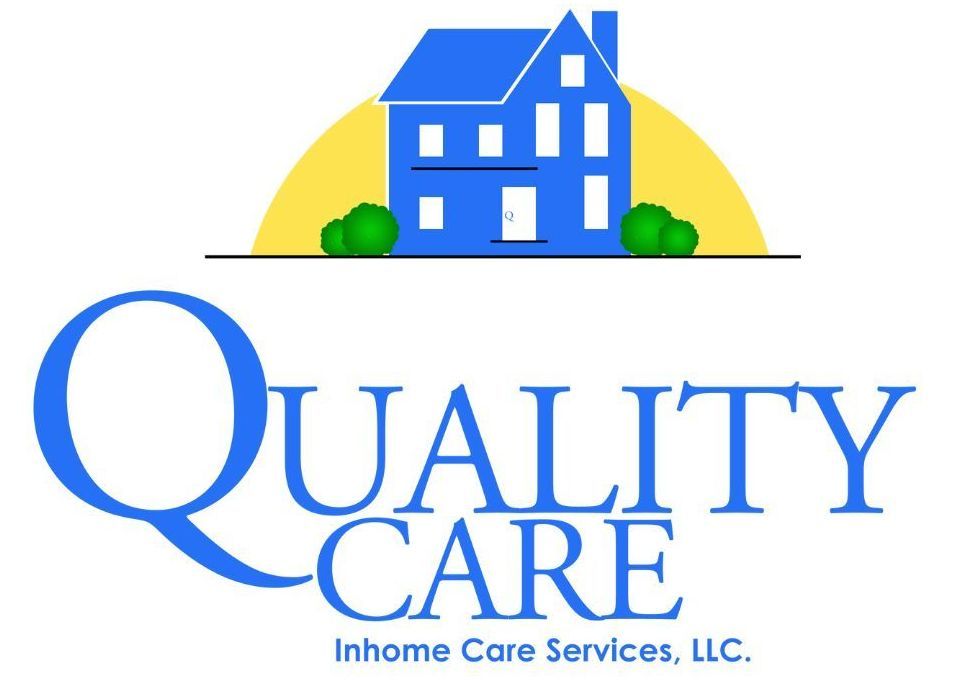The Importance of In-Homecare for Alzheimer's and Dementia Patients
Enhancing Quality of Life and Preserving Independence in the Familiarity of Home

Alzheimer's disease and other forms of dementia present unique challenges for individuals and their families. As these conditions progress, individuals often require specialized care and support to ensure their safety, comfort, and overall wellbeing. In-homecare emerges as a crucial solution, offering tailored assistance within the familiar surroundings of their own homes. This article explores the importance of in-homecare for Alzheimer's and dementia patients, highlighting the benefits it provides and the key role it plays in enhancing their quality of life.
Understanding Alzheimer's and Dementia
To comprehend the significance of in-homecare for Alzheimer's and dementia patients, it is essential to have a basic understanding of these conditions. Alzheimer's disease is the most common form of dementia, characterized by cognitive decline, memory loss, and behavioral changes. Dementia refers to a group of brain disorders that affect memory, thinking, and daily functioning. These conditions progressively impair individuals' ability to live independently, necessitating specialized care and support.
The Benefits of In-Homecare
Familiarity and Comfort:
In-homecare allows Alzheimer's and dementia patients to remain in a familiar environment, surrounded by cherished belongings, memories, and loved ones. This familiarity can reduce confusion, anxiety, and agitation commonly experienced by individuals with these conditions.
Personalized Care:
In-homecare provides personalized attention tailored to the unique needs of each individual. Caregivers develop a deep understanding of the person's preferences, routines, and abilities, enabling them to create a supportive and engaging environment.
Promoting Independence:
In-homecare focuses on maintaining and promoting independence to the fullest extent possible. Caregivers assist with activities of daily living, such as grooming, bathing, dressing, and meal preparation, while encouraging individuals to participate in tasks they can still manage.
Continuity of Relationships:
In-homecare allows Alzheimer's and dementia patients to maintain close relationships with family members, friends, and neighbors. This continuity of social connections can enhance emotional wellbeing, provide a sense of belonging, and reduce feelings of isolation.
Safety and Security:
In-homecare ensures a safe and secure environment for individuals with Alzheimer's and dementia. Caregivers are trained to identify and minimize potential hazards, implement safety measures, and provide supervision to prevent accidents and wandering.
Specialized Services in In-Homecare
In-homecare offers a range of specialized services designed specifically for Alzheimer's and dementia patients. These services address the unique needs and challenges associated with these conditions:
- Memory Care: Caregivers receive specialized training in memory care techniques, such as reminiscence therapy, cognitive stimulation, and validation therapy. These approaches help individuals maintain cognitive abilities, manage memory loss, and engage in meaningful activities.
- Medication Management: Caregivers assist with medication reminders, ensuring that individuals take their prescribed medications at the right time and in the correct dosage. They may also coordinate with healthcare professionals to monitor medication effectiveness and address any side effects.
- Behavioral Support: Alzheimer's and dementia can lead to challenging behaviors, including aggression, agitation, and wandering. In-homecare providers are trained to handle these behaviors effectively, using techniques such as redirection, validation, and creating a calm environment.
- Emotional Support: In-homecare caregivers offer emotional support to Alzheimer's and dementia patients, providing companionship, active listening, and empathetic understanding. This support can help reduce anxiety, depression, and loneliness, improving overall emotional wellbeing.
- Family Education and Support: In-homecare providers often offer educational resources and support to family members, equipping them with the knowledge and tools necessary to care for their loved ones. They can provide guidance on communication strategies, understanding behavioral changes, and accessing additional community resources.
The Role of Homecare in the Caregiver's Journey
In-homecare not only benefits Alzheimer's and dementia patients but also plays a crucial role in supporting caregivers. Caregivers of individuals with these conditions often experience physical, emotional, and mental exhaustion. In-homecare provides respite for caregivers, allowing them to take a break, tend to their own needs, and prevent burnout. It also offers valuable support and guidance, helping caregivers navigate the challenges of caring for someone with Alzheimer's or dementia.
Conclusion
In-homecare serves as a vital component of comprehensive care for Alzheimer's and dementia patients. Its ability to provide personalized assistance, maintain familiarity, promote independence, and ensure safety and security contributes significantly to the overall wellbeing and quality of life of individuals with these conditions. By recognizing the importance of in-homecare, individuals and their families can make informed decisions that support the unique needs of Alzheimer's and dementia patients, helping them age with dignity, comfort, and compassion in the familiar surroundings of their own homes.

Welcome to a realm of unparalleled healthcare excellence! Quality Care Inhome Care Services is proud to announce that our Atlanta-based home healthcare agency has clinched the prestigious Consumer Choice Award, a testament to our unwavering commitment to providing top-notch healthcare services. In this article, we delve into the intricacies of our agency, highlighting the factors that set us apart and led to this prestigious recognition.

Introduction In the bustling city of Atlanta, where the pulse of progress beats strong, there exists an extraordinary entrepreneur whose heart-driven mission has touched the lives of countless individuals. Meet Mr. Quality Care, a visionary with a passion for creating positive change in his community. As the founder and driving force behind Quality Care Inhome Care Services, Mr. Quality Care's journey is a testament to the power of heartfelt entrepreneurship.

When seeking care options for yourself or a loved one in Atlanta, understanding the differences between home healthcare and non-medical homecare services is essential. While both options aim to support individuals in the comfort of their own homes, they vary in terms of the level of medical assistance provided. In this comprehensive guide, we will delve into the distinctions between home healthcare and non-medical homecare services in Atlanta. By the end of this article, you'll have a clear understanding of each option and be better equipped to make informed decisions about your care needs.

Finding high-quality in-home care in Atlanta is crucial for our loved ones' health and wellbeing. When looking for help for elderly parents, people with disabilities, or those who are recovering from an illness or surgery, it's important to pick a home care provider who provides excellent care and comprehends the specific requirements of each person. We will examine the crucial elements to take into account while locating reputable home care in Atlanta in this complete guide. By the end, you'll have the knowledge you need to make wise choices and find the top local home care providers.

In today's fast-paced world, more and more individuals are seeking care options that allow them to receive assistance and support in the comfort of their own homes. Home-based care services have gained popularity, offering individuals the opportunity to age in place, recover from illnesses, or manage chronic conditions. Two common terms used in this context are "homecare" and "home healthcare." While they may seem similar, they have distinct differences in terms of the services provided, the level of medical care involved, and the qualifications of the caregivers. This article aims to provide a comprehensive understanding of these differences, helping individuals make informed decisions about the type of care that best suits their needs.

Promoting the wellbeing of the special needs community in Atlanta is of utmost importance in ensuring their overall quality of life and happiness. Quality in-home care plays a pivotal role in supporting individuals with special needs, empowering them to thrive and reach their full potential. This blog will explore the value of quality in-home care for Atlanta's special needs community, highlighting its impact on their physical health, emotional well-being, social integration, and overall quality of life.

Providing quality care for individuals with special needs is of paramount importance in fostering their overall well-being and enhancing their quality of life. In Atlanta, there is a growing recognition of the significance of tailored support through high-quality in-home care services. This blog will delve into the ways in which quality in-home care benefits the special needs population in Atlanta, highlighting the positive impact it has on their independence, social integration, and overall happiness.

When it comes to providing care for aging loved ones, families often face the decision between non-medical in-home care and assisted living. Both options have their merits, but it's crucial to understand the differences and make an informed choice. In this blog post, we will explore the key aspects of non-medical in-home care and assisted living in Atlanta, helping you make the best decision for your family's unique needs.

Private home care has become an increasingly popular option for seniors and individuals with disabilities who wish to receive care in the comfort of their own homes. Georgia, a state known for its rich history and southern charm, has a growing demand for private home care services. But what exactly is a private home care provider in Georgia? In this comprehensive guide, we will delve into the world of private home care providers, explaining their services, benefits, regulations, and qualifications. Whether you are a family member seeking care for a loved one or an individual in need of assistance, this blog post will provide you with valuable insights into private home care providers in Georgia. Understanding Private Home Care Private home care, also known as in-home care, is a type of healthcare service that is provided in the comfort of an individual's own home. Private home care providers offer a wide range of services tailored to meet the unique needs of each individual. These services can include personal care, companionship, medication management, meal preparation, light housekeeping, and assistance with activities of daily living (ADLs) such as bathing, dressing, and grooming. In Georgia, private home care providers are typically non-medical providers, meaning they do not provide medical services such as administering medication or performing medical procedures. However, they work closely with healthcare professionals to ensure the overall well-being of the individual receiving care. Services Provided by Private Home Care Providers in Georgia Private home care providers in Georgia offer a wide range of services to meet the varying needs of their clients. These services may include: Personal Care: Private home care providers assist with personal hygiene, such as bathing, grooming, and dressing. They also provide assistance with mobility, transfers, and positioning to prevent falls. Companionship: Private home care providers offer companionship and emotional support to individuals who may feel lonely or isolated. They engage in social activities, conversation, and hobbies to enhance the overall well-being of the client. Medication Management: While private home care providers in Georgia cannot administer medication, they can help with medication reminders, organizing pillboxes, and ensuring that medications are taken as prescribed. Meal Preparation: Private home care providers can prepare nutritious meals and snacks based on the dietary preferences and restrictions of the individual. They also assist with feeding, if necessary. Light Housekeeping: Private home care providers help with light housekeeping tasks such as laundry, dishwashing, and maintaining a clean and safe environment for the client. Assistance with ADLs: Private home care providers assist with activities of daily living (ADLs) such as toileting, transferring, and ambulation. They also provide continence care and manage incontinence products. Transportation: Private home care providers may provide transportation services to help individuals get to appointments, social events, and other outings. Benefits of Private Home Care in Georgia Private home care offers numerous benefits to individuals in Georgia who wish to receive care in their own homes. Some of the key benefits of private home care include: Personalized Care: Private home care providers develop personalized care plans tailored to meet the unique needs and preferences of each individual. This allows for individualized attention and care, promoting overall well-being. Comfort of Home: Private home care allows individuals to receive care in the familiar and comfortable surroundings of their own homes. This can help reduce stress and anxiety associated with moving to a care facility. Independence and Dignity: Private home care encourages individuals to maintain their independence and dignity. It allows them to continue their daily routines, hobbies, and social activities, promoting a sense of normalcy and autonomy. One-on-One Attention: Private home care providers in Georgia typically offer one-on-one care, allowing for personalized attention and building meaningful relationships between the caregiver and the client. This promotes trust, comfort, and companionship. Cost-Effective: Private home care can be a more cost-effective option compared to other types of care, such as nursing homes or assisted living facilities. It allows individuals to receive the necessary care in their own homes without incurring the higher costs associated with care facilities. Family Involvement: Private home care also allows for family members to be involved in the care process. Family members can actively participate in the care plan, provide input, and be involved in decision-making, ensuring the best care possible for their loved ones. Regulations and Qualifications for Private Home Care Providers in Georgia Private home care providers in Georgia are regulated by the Georgia Department of Community Health (DCH) and are required to meet certain qualifications. Some of the regulations and qualifications for private home care providers in Georgia include: Licensing: Private home care providers in Georgia are required to obtain a license from the Georgia Department of Community Health (DCH) to operate legally. The DCH conducts inspections and ensures that providers meet the necessary requirements to ensure quality and safe care. Background Checks: Private home care providers in Georgia are required to undergo thorough background checks, including criminal history and abuse registry checks, to ensure the safety and well-being of clients. Training and Certification: Private home care providers in Georgia are required to undergo training and obtain certification in basic caregiving skills, first aid, and CPR. Some providers may also offer specialized training for specific conditions, such as dementia care. Care Plans: Private home care providers in Georgia are required to develop and implement care plans that are tailored to meet the unique needs of each individual. Care plans should be regularly reviewed and updated to ensure that the care provided is appropriate and effective. Supervision and Oversight: Private home care providers in Georgia are required to have a system in place for supervision and oversight of caregivers to ensure that they are providing safe and quality care to clients. Insurance and Bonding: Private home care providers in Georgia are required to carry liability insurance and bonding to protect clients and their families from any potential damages or losses. Conclusion Private home care providers in Georgia offer valuable services to individuals who wish to receive care in the comfort of their own homes. They provide personalized care, promote independence, and offer various services tailored to meet the unique needs of each individual. However, it's important to ensure that private home care providers meet the necessary regulations and qualifications to ensure quality and safe care. If you or your loved one is considering private home care in Georgia, be sure to thoroughly research and choose a reputable provider to ensure the best care possible.









